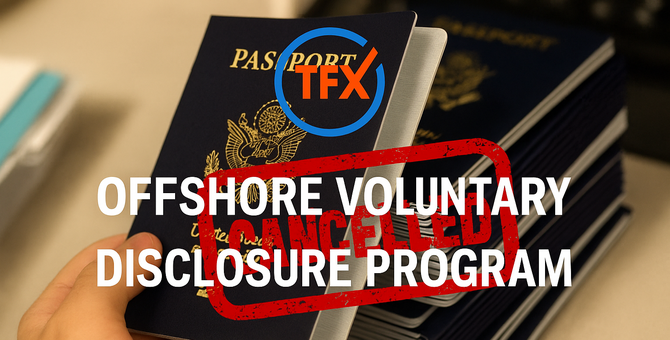Supreme Court Ruling: Non Willful Failure to File FBAR Penalty Applies Per Report, Not Per Account
On February 28, 2023, the U.S. The Supreme Court made a landmark decision on how the penalty for a non-willful failure to file a Report of Foreign Bank and Financial Accounts (FBAR) for foreign accounts is to be calculated. The Court held, in a 5-4 decision, that the $10,000 penalty for a non willful failure to file an FBAR for foreign accounts accrues per report, not per account.
This decision resolved a split between the Fifth and Ninth circuits, with the Fifth Circuit previously holding that the penalty can be imposed per unreported account, while the Ninth Circuit had held that it can only be applied per unfiled FBAR covering all foreign accounts each year.
FBARs (Financial Crimes Enforcement Network (FinCEN) Forms 114, Report of Foreign Bank and Financial Accounts) are required to be filed annually by the Bank Secrecy Act of 1970 (BSA), P.L. 91-508. U.S. persons must report on an FBAR all financial interests in, or signature or other authority over, financial accounts located outside the United States if the aggregate value of those financial accounts exceeds $10,000 at any time during the calendar year covered by the FBAR.
Per Report, Not Per Account
The decision arises from an appeal brought by Romanian-American businessperson Alexandru Bittner, who contested the penalties assessed by the IRS for 2007 through 2011 totaling $2.72 million for his non willful violations of the FBAR reporting requirements for 272 accounts.
Bittner argued that the FBAR penalty applies on a per-report, not per-account, basis, and that he owed only $50,000 in penalties. The district court agreed with Bittner, holding that the penalty applies per report. The government appealed, and the Fifth Circuit reversed the district court. However, a split in the circuits was created when the Ninth Circuit held that the fine applies on a per-report basis.
In its opinion, the Supreme Court agreed with the Ninth Circuit's interpretation, concluding that:
best read, the BSA treats the failure to file a legally compliant report as one violation carrying a maximum penalty of $10,000, not a cascade of such penalties calculated on a per-account basis.
Reasoning Behind the Decision
The Court noted that 31 U.S.C. Section 5314, which spells out an individual's legal duties under the BSA, does not speak of accounts, but rather of a legal duty to "file reports." These reports must include various kinds of information about the individual's foreign transactions or relationships. Under 31 U.S.C. Section 5321 a penalty of up to $10,000 is imposed for "any violation" of Section 5314, and under Section 5314 a violation occurs "when an individual fails to file a report consistent with the statute's commands".
Therefore, the Court determined that "penalties for non willful violations accrue on a per-report, not a per-account, basis," and it reversed the Fifth Circuit's decision.
Difference in Language for Willful Violations
The Court also emphasized the difference in language in the statute in describing the application of the FBAR penalties to willful violations as opposed to non willful ones. Congress explicitly authorized per-account penalties for some willful violations. However, the government's interpretation defies the traditional rule of statutory construction because when Congress wished to tie sanctions to account-level information, it knew exactly how to do so.
Dissenting Opinion
A dissenting opinion, joined by four justices, argued that Section 5314's reporting requirement attaches a burden to an individual's exercise of their constitutional rights, specifically the right to travel and to petition the government for a redress of grievances. The dissenting opinion argued that this reporting requirement could have a chilling effect on these rights and that the government's interest in collecting this information was not strong enough to justify such an infringement.
The dissent also pointed out that the majority's interpretation of "currency" in Section 5314 was overly broad and could potentially encompass any valuable item that could be used as a means of exchange, such as gift cards or loyalty points. This interpretation, according to the dissent, could result in the reporting requirement being applied to a wide range of transactions that have no connection to money laundering or other criminal activity.
Implications of the Decision
The Supreme Court's decision in this case clarified the scope of the reporting requirement in Section 5314 and affirmed the government's authority to enforce it. Financial institutions and individuals who engage in large currency transactions will now have to report those transactions to the government as required by law.
However, the dissenting opinion's concerns about the potential infringement on constitutional rights and the overly broad interpretation of "currency" in Section 5314 raise important issues for future cases. It remains to be seen how the government will apply this reporting requirement in practice and whether challenges to its constitutionality will arise.



